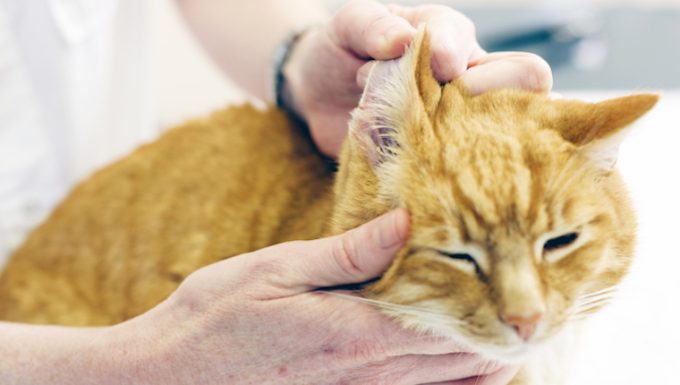Adenocarcinoma in cats is a form of ear cancer. The condition happens when there are problems with the sweat glands in a cat’s external auditory canal.
Technically, your might hear the condition called ceruminous gland adenocarcinoma.
Older cats are generally affected by the condition the most. Although thankfully it is considered to be a





